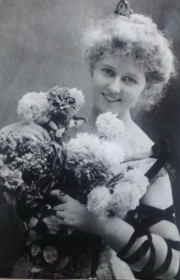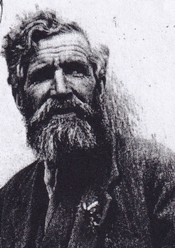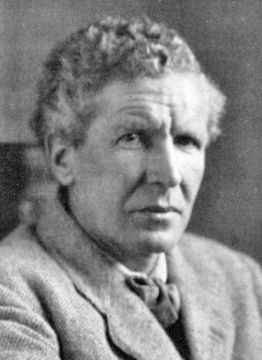View entry
Name: POWYS, Llewellyn



Birth Date: 13 Aug 1884 Dorchester
Death Date: 2 Dec 1939 Dorchester
First Date: 1913
Last Date: 1919
Profession: Manager for Galbraith Cole in 1918 at Kekopey. Left the Cole's employ in 1919 and returned to England after his brother Will's return from the war. Consumptive
Area: Elmenteita
Married: 30 Sep 1924 Alyse Gregory b.18 July 1883 Norwalk, Connecticut, d. 27 Aug 1967 Tiverton, writer
Author: 'Black Laughter', 'Ebony and Ivory'
Book Reference: Random, Midday Sun, Hut, Nicholls, Powys
School: Sherborne, Corpus Christi Cambridge
General Information:
Random - 'I think Mr Powys - G's present manager - is thankful to have him back. He has been through a fearfully anxious time. He is such a charming man.' ...... 'Llewellyn Powys was a delightful person, though not a farmer. He was a literary man who had come out to Africa for his health, as he was suffering from weak lungs.' [Eleanor Cole possibly a mistress?]
Midday Sun - 'Llewellyn Powys became Galbraith Cole's unlikely but congenial manager. Powys was a consumptive who had come to Africa to join his younger brother Will in the hope that the clean highland air would purge him of the disease. Will and Llewellyn were sons of the Rev. Charles Powys and his wife Mary, who reared 11 children in their vicarage at Montacute in Somerset. ........ Most of the men enjoyed striking good looks; they were tall and well-built with fine-cut, positive features and tightly curled hair. ..........….
Will Powys was working for the EA Syndicate on their huge block of undeveloped land between Gilgil and Thomson's Falls. Most of it was high, cold and wild with a good deal of forest, and it was here that Llewellyn joined his younger brother just after the start of WW1. Llewellyn, still coughing blood, barely had time to pick up a smattering of livestock knowledge and Swahili before Will rode off on a mule to join the EAMR, leaving his brother in charge of 2000 head of cattle, 14000 sheep and a virtually untrained labour force. Anyone more unsuited to the life of a farmer in Africa it would be hard to imagine. Llewellyn had been a schoolmaster and had tried his hand at essays and sketches, up till then with scant success. His cast of mind was intellectual and aesthetic, his nature sensitive and sweet. The Powys good looks and charm of manner were his in full measure and, despite his illness, he seemed to overflow with zest for life and vitality. Women inevitably succumbed. 'His face had the beauty of an apple orchard under the sun,' wrote one of his mistresses, Alyse Gregory, whom he eventually married. Even when he lay dying in a Swiss sanatorium the novelist Ethel Mannin testified 'I have never known such charm - charm that kindles the senses like sunlight.' .... (more) ...…
To maroon such a man among the creudities of African farming was rather like pitching a maestro with a Stradivarius into a village brass band. He hated the cruelty and indifference to human life he saw in his surroundings, and the uncouthness of those Africans, and the coarseness of those Europeans, he encountered; hated them and feared them, yet responded to the country's beauty. One day, riding in the forest, he came upon a young and all but naked Kikuyu girl filling her water-gourd at a pool. Beguiled, he returned to assignations with her beside the pool and 'the long, lonely years I had passed in Africa made my whole being cry out for something to love, for some romance, for it is exactly this that is lacking in the great dark continent'. He contemplated a retreat from civilizations complexities into a romanticised primitive world, and proposed marriage, African style. The girl's father named a bride-price but she herself shrank from so traumatic a step. So Llewellyn 'never again looked into the provocative eyes of this rare hamadryad of the African forest.'
He may not have looked into hamadryad's eyes but it was not in his nature to live for long without women. 'I see in the background 3 Kikuyu girls from far away,' he wrote to his brother. 'I shall perhaps select one when I come back to dinner tonight.' But the local women soon disillusioned him .......... 'even the black women give me small compansation - great black Gilgil trots poxed for the most part and without modesty.' ...…
After the EA Syndicate changed hands, he moved down to Kekopey in the Valley where life was rather more civilized. He and Galbraith Cole took to each other, though with reservations; in character and outlook they were poles apart. Galbraith (Llewellyn wrote) might be 'as hard as flint and crafty as a snake, and cold as ice, but by Jove he has a brain and one can say anything to him, and he will switch his brain on to it and ferret it out. He has more intelligence than anybody else in EA and more distinction of mind .......' Never in his life before, Llewellyn added, had he met so strong a character. .......... (more)
Nicholls - Llewelyn Powys had come to Kenya to cure his tuberculosis but to his chagrin found the settlers had 'heads made of concrete', apart from Galbraith Cole, Lord Delamere's brother-in-law, who 'at least has a hawk's brain'. Powys was exaggerating, for he was isolated on a farm and things were not as bad as he thought.
Nicholls - There were, however, regular liaisons between white men and African women. Llewelyn Powys consorted with African women, though they often disgusted him - 'great Gilgil trots [whores] poxed for the most part and without modesty …. I see in the background 3 Kikuyu girls who have come from far. I shall perhaps select one when I come back from dinner tonight.'
Powys - Ebony and Ivory - (sea journey home by SS Rufus Castle) - June 26th - Arrived at Durban this morning. Walked with Lawrence Tooth to the sea front …… June 27th - To the Zoo with Tooth. Far the best place we have yet found. We saw a wonderful monkey. Its rainbow coloured, lewd, bizarre appearance filled Tooth with horror. He declared that if he could, he would obliterate such creatures from the face of the earth. But I liked to see it. The more extravagant the creation the more in keeping with this brave fantastical Universe. Drank tea on the lawn outside, all very harmonious. June 28th - Sitting this evening on deck, suddenly we hear a roar of fog-horns, sirens, hooters. We knew at once that Peace had been signed. "I am glad they have been done down," said Tooth, "they really were a frightful menace to civilization."
